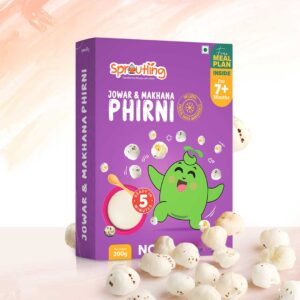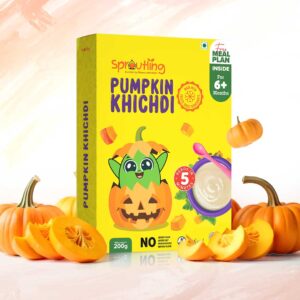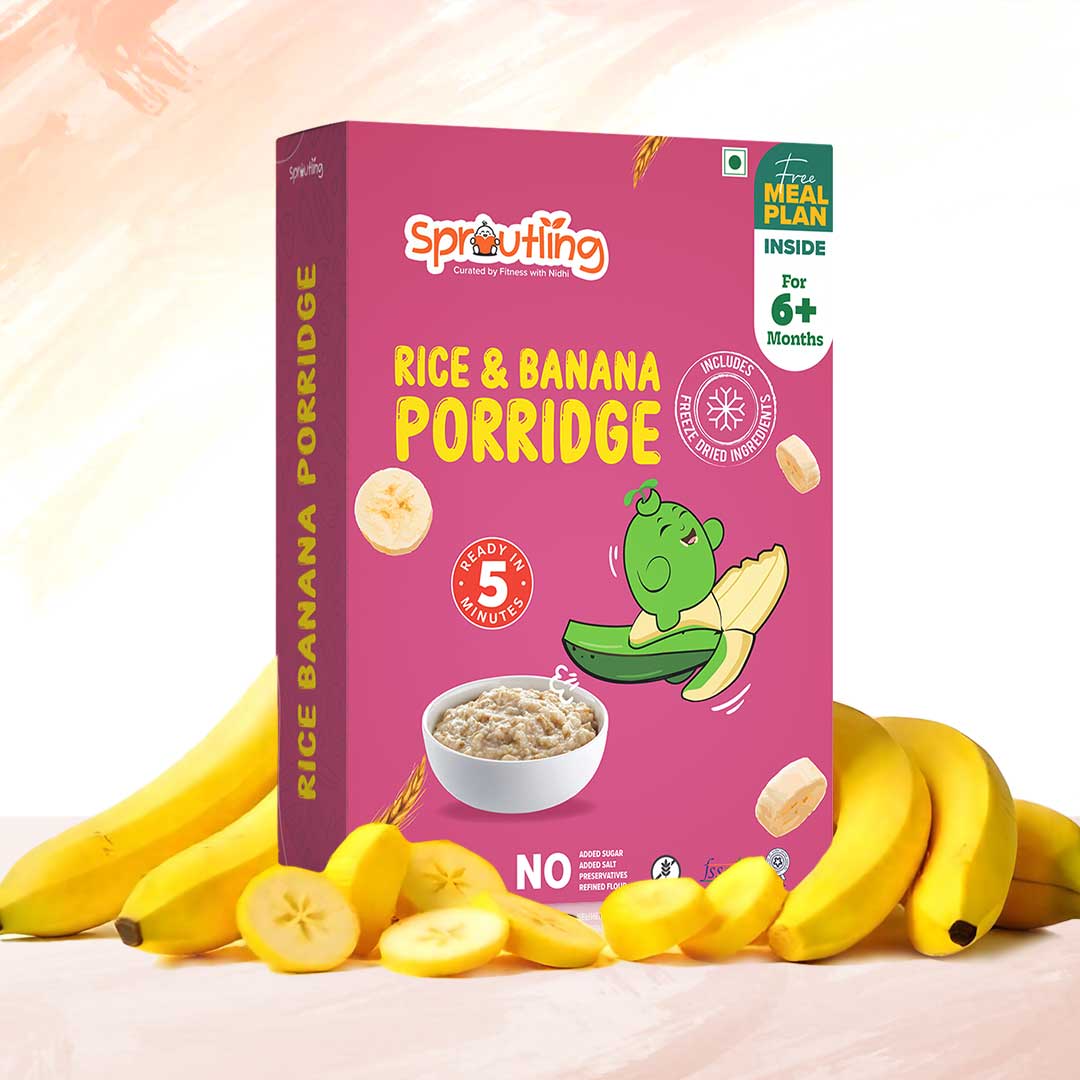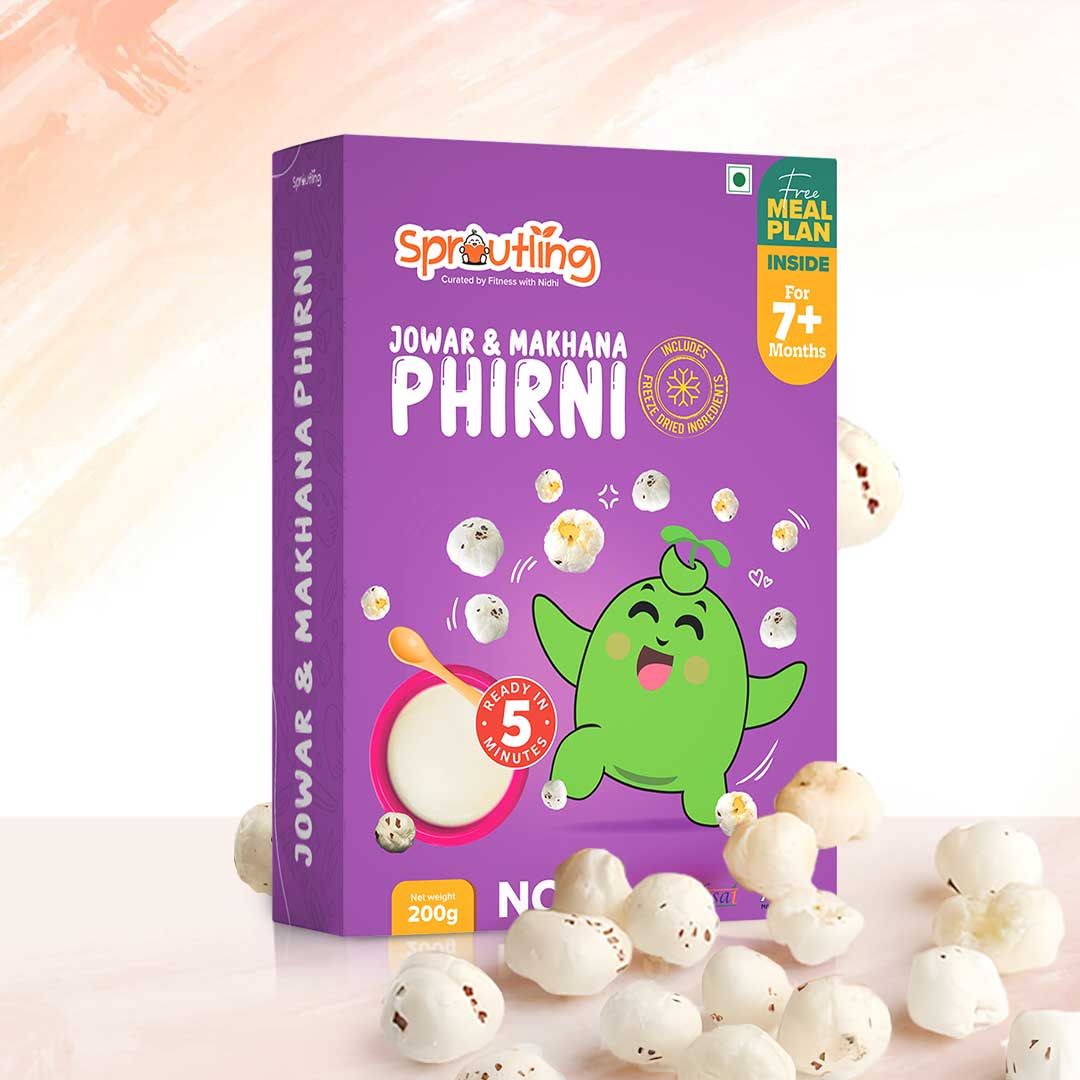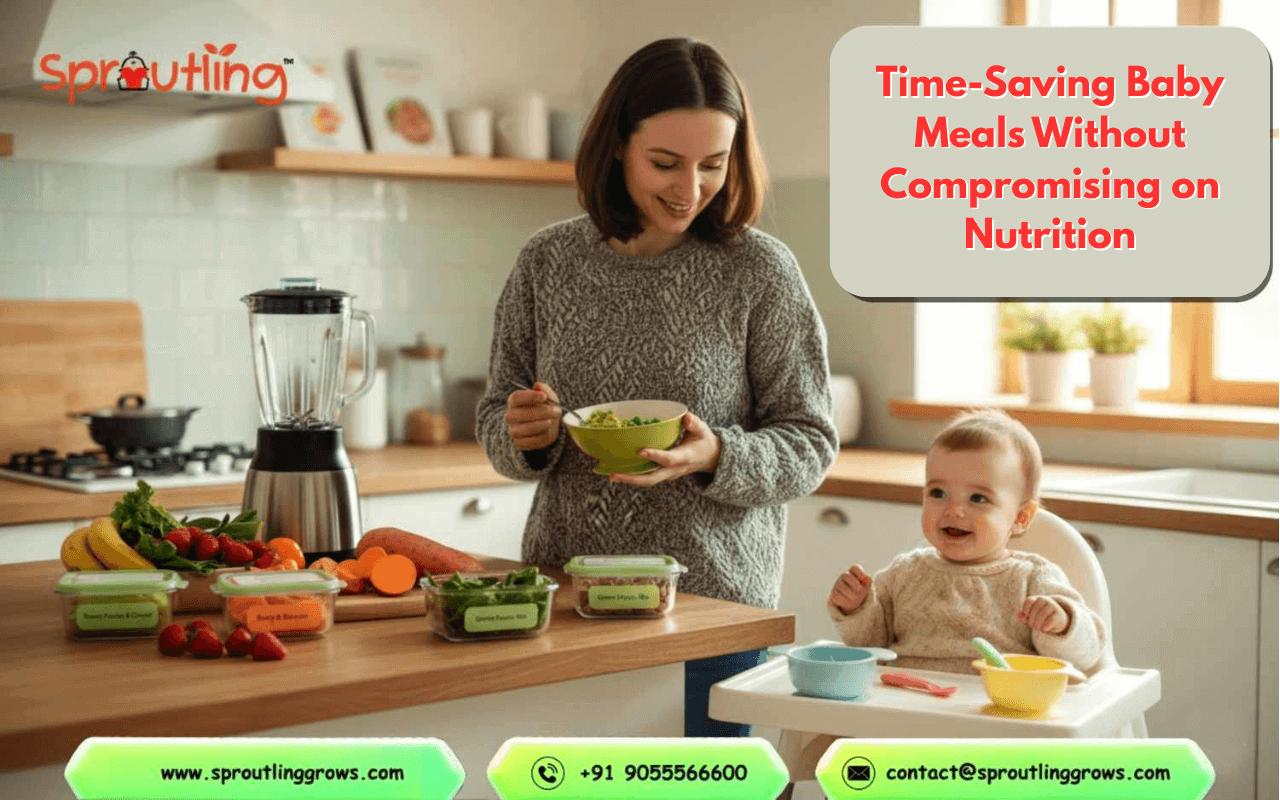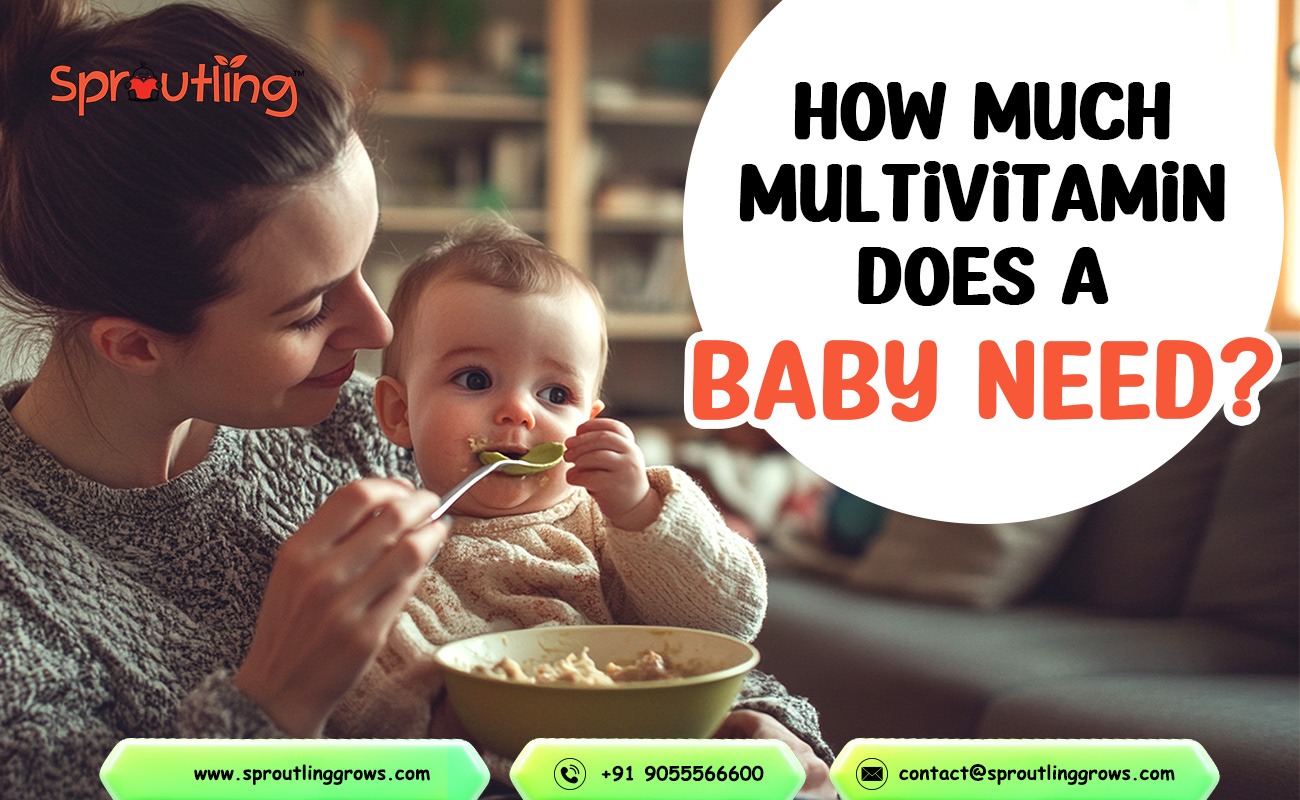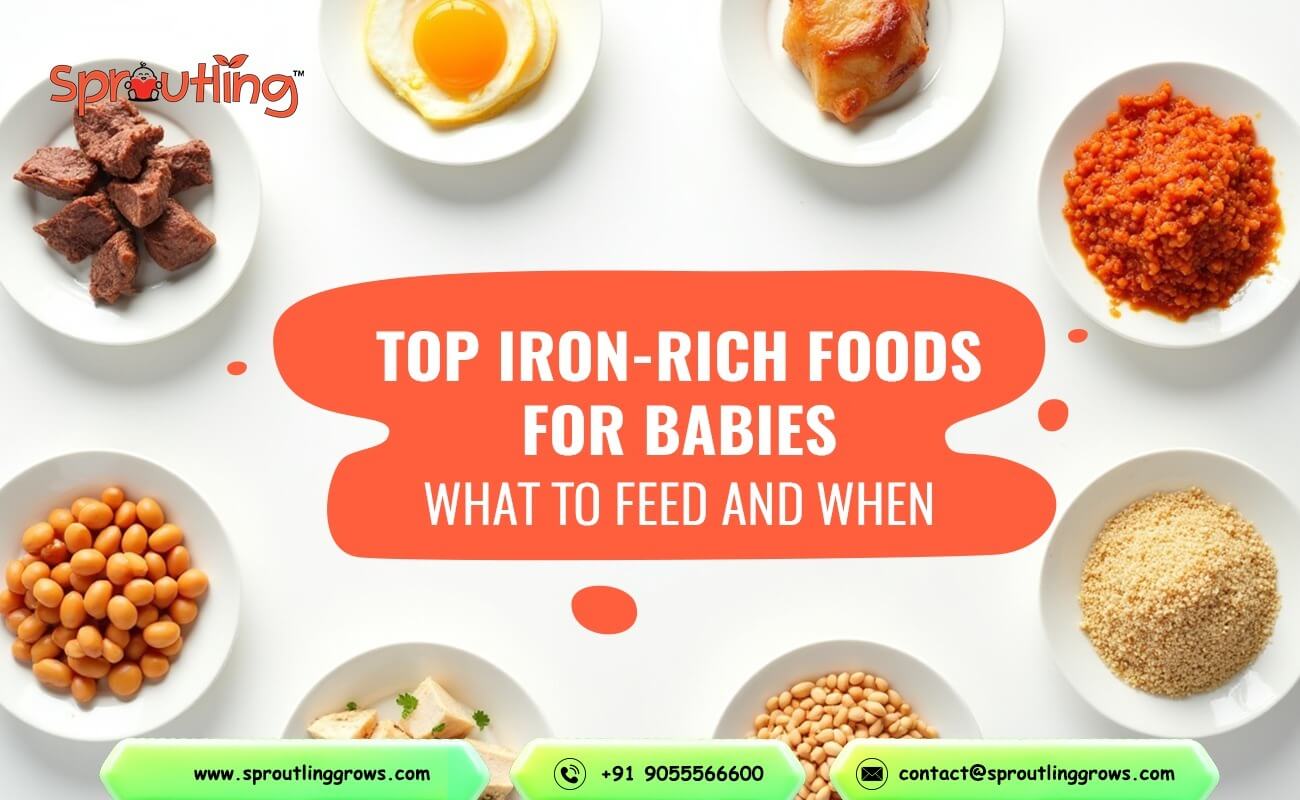
Top Iron-Rich Foods for Babies: What to Feed and When
Table of Contents
Iron is important for babies from the start. Iron helps babies think, move, and grow. In the beginning, they get what they need from breast milk or formula. But around six months, their iron levels start to go down. That is the stage when parents should start giving iron-rich foods for babies as part of everyday meals.
In this article, I will go over how much iron babies need, when to start offering iron-rich meals, what foods to choose, and how to help your baby absorb iron well. Whether your child eats meat or you are looking for vegetarian options, you will find practical advice here.
When to Start and Why Iron Is Important?
Once babies turn six months old, breast milk may not be enough to meet their growing iron needs. The formula has some iron added, but that still may not be enough on its own. Some babies look fine at first, but then you start noticing things. Maybe they look pale or are not gaining weight like before. They might get tired quickly or stop showing interest in food.
Signs of iron deficiency in babies:
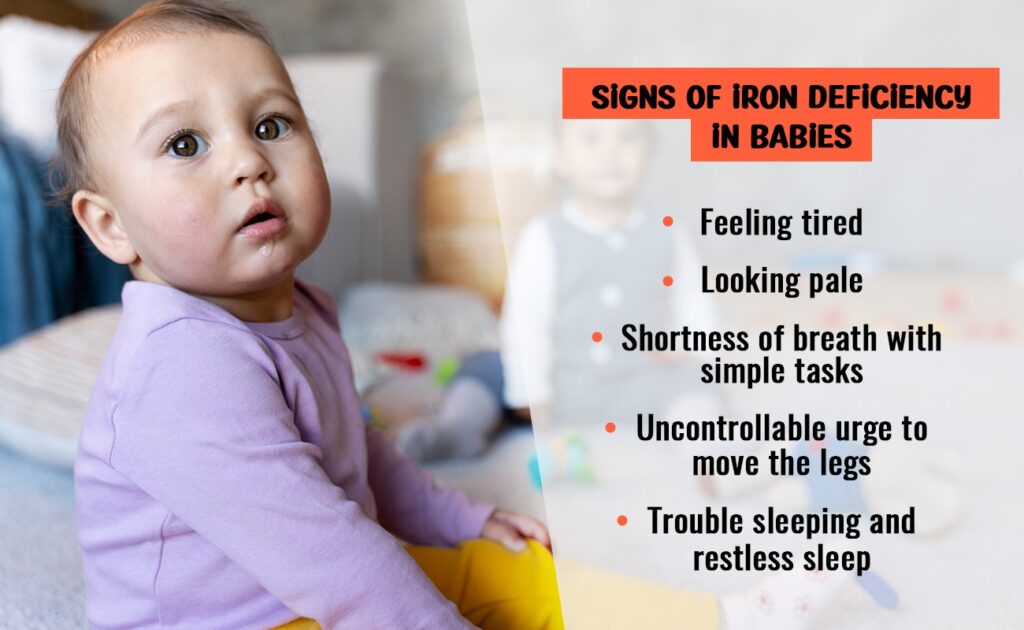
- Skin that looks a little paler than usual
- Not putting on enough weight
- Getting tired too soon
- Eating less than they used to
This is why I tell parents to begin feeding iron-rich baby food as soon as solids are introduced (usually around six months). It helps reduce the risk of low iron before it turns into a bigger concern.
How Much Iron Do Babies Need?
- 0 to 6 months – 0.27 milligrams per day
- 7 to 12 months – 11 milligrams per day
When babies reach six months of age, breast milk is no longer able to meet their iron needs. The formula has added iron. However, babies may need daily meals with iron in order to meet nutritional goals and healthy development.
Heme vs Non-Heme Iron Food
Some types of iron you find in foods are more easily absorbed by babies; some are not. The iron found in animal sources of food provides a type of iron that can be used easily in the body. Plant sources of iron provide another type of iron, but they need a little assistance from fruits and vegetables. Once you can distinguish the difference between heme and non-heme iron, it will be much less intimidating to figure out what food items to put on your baby’s plate.
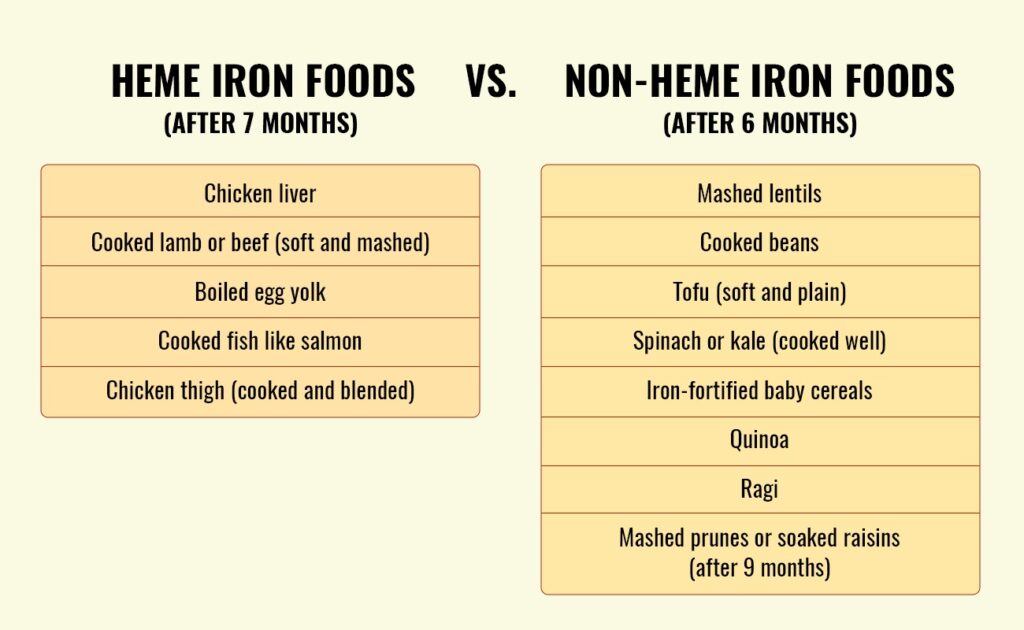
Best Iron Foods for Babies
Here are foods to try as your baby begins solids. Some are animal-based, and some are plant-based.
Heme Iron Foods (after 7 months)
- Chicken liver
- Cooked lamb or beef (soft and mashed)
- Boiled egg yolk
- Cooked fish like salmon
- Chicken thigh (cooked and blended)
Non-Heme Iron Foods (after 6 months)
- Mashed lentils
- Cooked beans
- Tofu (soft and plain)
- Spinach or kale (cooked well)
- Iron-fortified baby cereals
- Quinoa
- Ragi
Mashed prunes or soaked raisins (after 9 months)
These are some of the best iron foods for babies, especially when offered in rotation.
Iron Absorption Tips for Babies
Here are some tips to assist infants with iron absorption:
- Offer vitamin C-rich fruits (like mashed tomato and orange)
- Avoid providing dairy with iron-rich foods in the same meal
- Cook infant meals in a cast-iron pan
- Provide soaked or sprouted grains (or lentils)
These iron absorption tips for infants should help enhance what they are eating.
Easy Homemade Iron-Rich Baby Food Ideas
You do not need fancy recipes. Here are some simple ideas using baby foods high in iron:
- Mashed dal with tomato
- Pumpkin Khichdi
- Egg yolk mashed with sweet potato
- Cereal with mashed banana
- Ragi with prunes
- Quinoa with carrots and lentils
- Chicken liver blended into cooked dal
These are practical, homemade iron-rich baby food ideas coming straight from the repertoire of families that many already use.
Iron-Fortified Baby Foods
When you are short on time, iron-fortified baby foods can come to your rescue. These include cereal mixes and simple snacks made for infants. Look for plain versions with added iron and no added salt or sugar.
These options support babies who need help reaching their daily iron target.
Should You Give Iron Supplements?
Sometimes, food alone is not enough. Your doctor may suggest an iron supplement. This is more common for babies who are breastfed and slow to start solids.
Only give supplements if a doctor says it is needed. Too much iron can upset the stomach. There is no single best iron supplement for babies.
Conclusion
Once you know when to start on iron-rich foods, meeting your baby’s iron requirements will be a lot easier. You can include fish and vegetarian sources of iron for babies, and you can make your iron-rich baby food for more variety.
Use basic iron absorption ideas for babies, and keep in mind the foods to avoid with iron-rich meals. Feeding a mixture of iron-rich foods for babies and baby foods high in iron daily will support healthy growth and reduce the risk of iron deficiency.
A general way will give your child the amount of iron for babies that they require every day.
FAQs
1. How much iron does a baby need every day?
Babies need approximately eleven milligrams of iron per day. Advise them on iron-rich foods when they start eating solids at approximately six months. From seven to twelve months, a baby needs, on average, eleven milligrams of iron daily.
2. What are valuable vegetarian iron sources for babies?
You may consider tofu, ragi, quinoa, lentils and spinach, or baby cereals fortified with iron. In case your baby is not eating meat, these are some great examples of iron-rich baby food.
3. When do you start giving iron-rich foods?
When your baby is introduced to solids, usually at six months of age.
4. Can dairy inhibit iron?
Yes. We want to avoid giving your infant milk or curd when the iron is being served. These are the foods we want to avoid having with iron.



